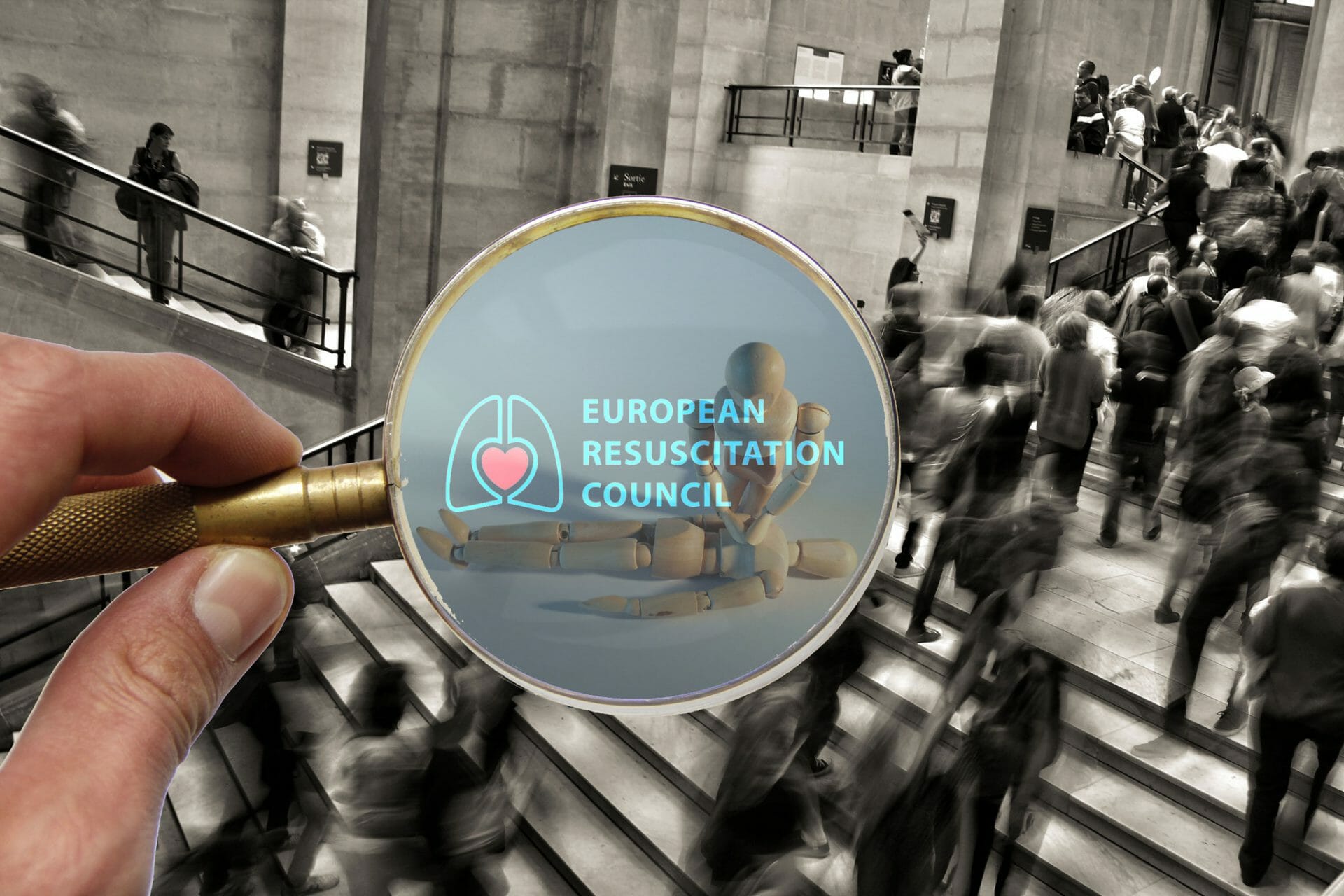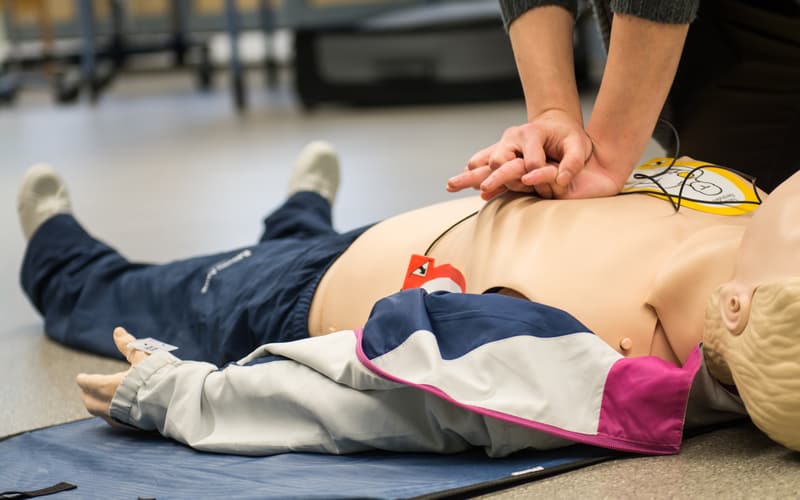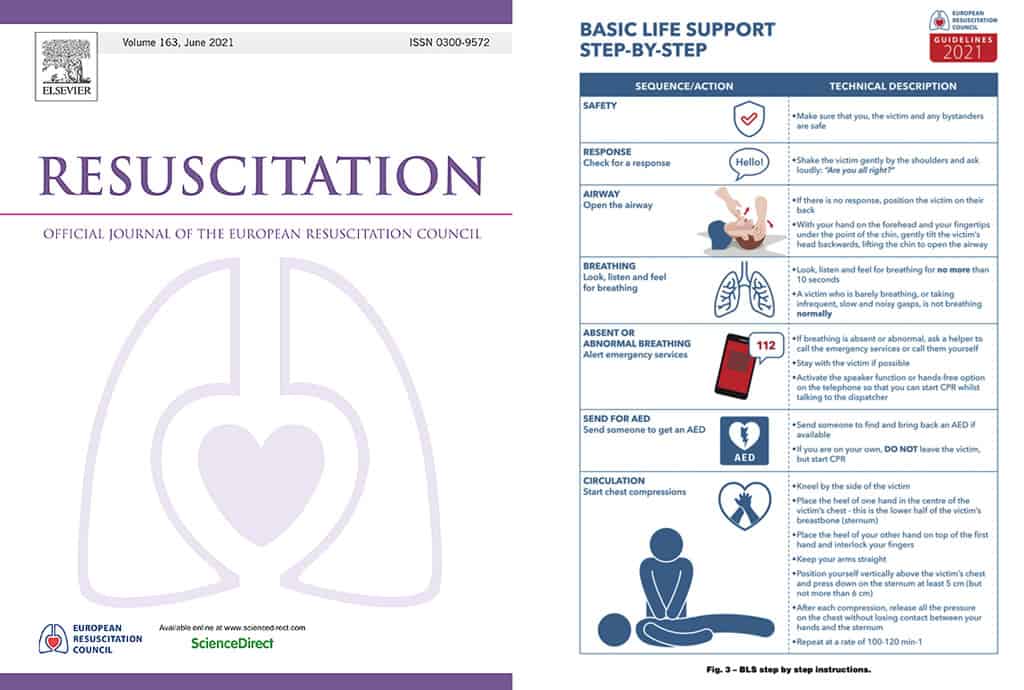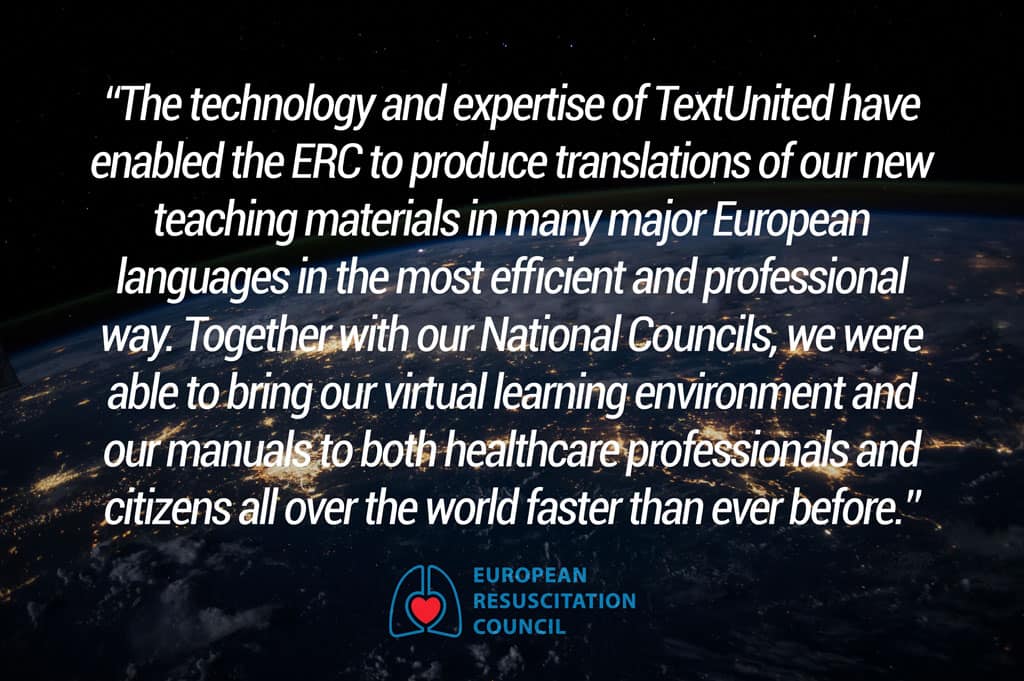Witnessing a cardiac arrest: a distressing and pressurised situation in which the average person would probably rather not find themselves.
In such moments, having the knowledge, skills, and confidence to administer CPR or correctly use a defibrillator can mean saving a life. The practicalities of this essential skill might transcend the spoken word, but the technical training it demands requires precise, agile language.
CPR training Image courtesy of ERC
Working across and beyond the continent, the European Resuscitation Council (ERC) aims to create nations of lifesavers: communities of people empowered and ready to provide quick, effective responses to cardiac arrest. Catering for both the wider public and healthcare professionals, the world-leading standard of training provided by the ERC does just that. Comprised of 33 National Resuscitation Councils, the linguistic precision of their training and guideline documents is crucial to the integrity of their excellent research and crucial services.
What do the ERC do?
It all begins with science. As a member of the International Liaison Committee On Resuscitation (ILCOR), the ERC contributes to the worldwide Consensus On Science and Treatment Recommendations (CoSTR). From researching the effects of ambulance response times to recommending the implementation of cardiac arrest training for children, the ERC create and support scientific initiatives to improve resuscitation science. Their official peer-reviewed journal, Resuscitation, regularly publishes medical studies.
Through their scientific research, the ERC publish European Resuscitation Guidelines which lead the way for resuscitation training and practice throughout Europe and beyond. They give specific instructions on how to perform resuscitation, considering practical accessibility and well as maintaining a rigorous scientific background.
Using these annually updated guidelines, the training provided by the ERC is implemented by a network of councils, organisers, directors, and instructors for health professionals and laypeople. They offer an array of courses, from Basic Life Support to Educator Master Classes, providing certificates upon completion.
Resuscitation Cover and a section of the ERC guidelines 2021.
New research initiatives and training
Highlighting new research, initiatives and providing training, the ERC’s yearly congress is a fantastic chance to interact with resuscitation experts and widen your knowledge base. Some selected events from the 2021 congress included the challenges and solutions surrounding cardiac arrests in rural Scotland, and the causes of cardiac arrest in Covid-19 patients. Here, the new guidelines are also introduced. The past two events have been digitised to great success, and are adaptable to different time zones for members all over the world.
The ERC also work hard to raise public awareness of cardiac arrest, and the availability of lifesaving training. They established the annual European Restart a Heart Day (16th of October), which emphasises that anyone can learn CPR, and aims to facilitate training in schools and communities. Posters and flyers give people accessible information on CPR in their own language, and the ERC partners with its internationally located councils to promote awareness.
Finally, the ERC ensure national representation via their network of councils. Each one works with its respective healthcare system, in their respective language, to oversee the delivery of ERC guidelines, training, and quality control.
To improve the quality of post-resuscitation care across Europe the ERC is joining its sister associations in a post-cardiac arrest management (POSTCAM) programme.
The ERC mission
The ERC’s code of ethics upholds the interdisciplinary work they undertake. Clinical investigations and scientific projects; scientific meetings; interaction with medical companies; education and courses; and the organisation, its staff, volunteers and councils are all enshrined in an ethical code of conduct.
Above all, the ERC’s mission is to preserve human life by making high-quality resuscitation available to all. Since 1989, they have worked using an inclusive, international ethos to make resources available to spread and improve the availability of such care. International communication across many different languages is crucial to their work. Text United are proud to provide translation for them from English to German, French, Spanish, Dutch, Russian, and Greek.
The ERC aims to improve access to resuscitation resources on a Global scale. With our expertise, we can help them reach that goal





